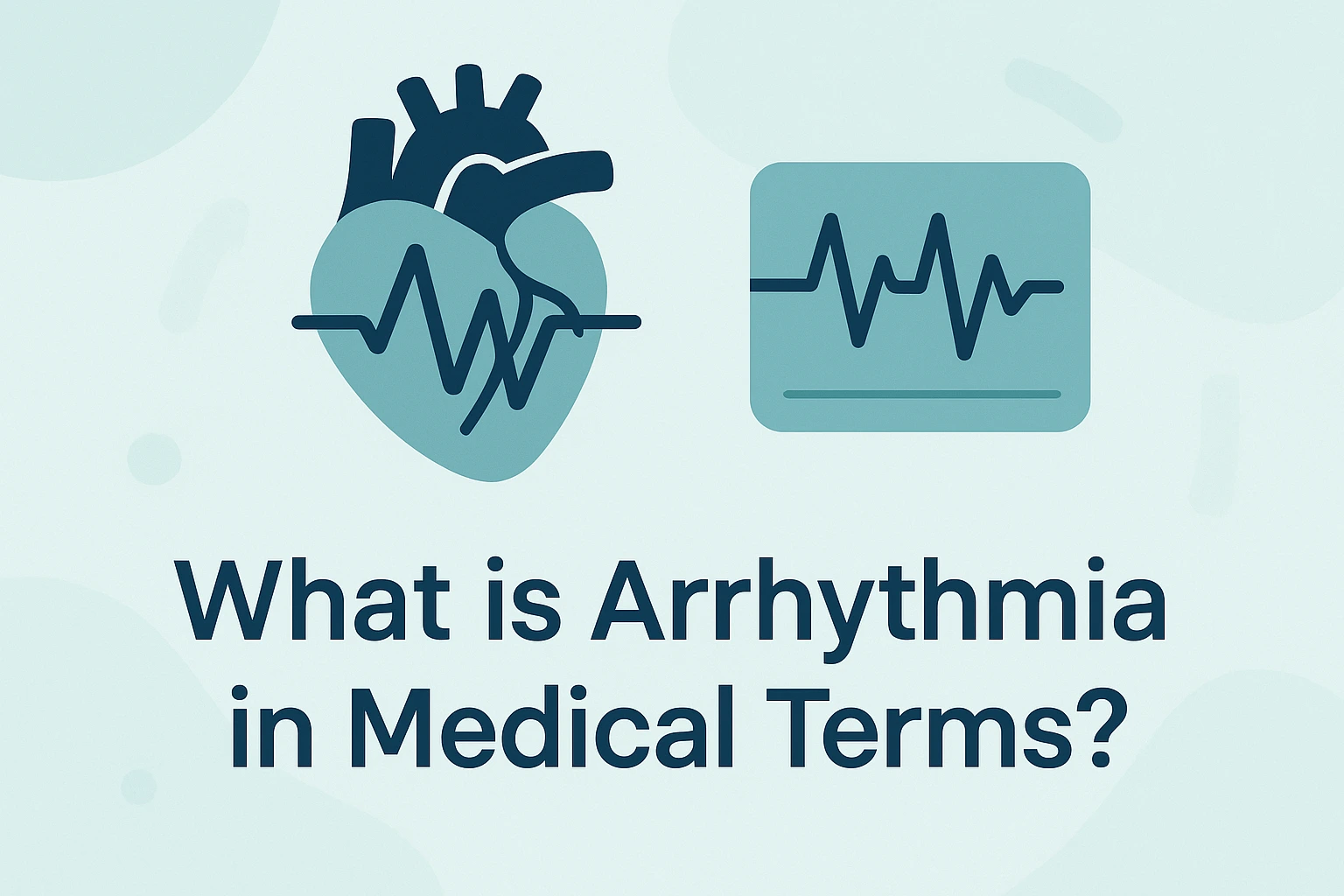Arrhythmia refers to an abnormal heart rhythm, where the heart beats too fast, too slow, or irregularly. It occurs when the electrical impulses that coordinate the heart’s beating are disrupted, causing the heart to beat in an uncoordinated way. This condition can range from benign to life-threatening, depending on the type and severity of the arrhythmia.
There are several types of arrhythmia, including:
- Tachycardia: Abnormally fast heart rate (over 100 beats per minute).
- Bradycardia: Abnormally slow heart rate (under 60 beats per minute).
- Atrial Fibrillation (AFib): An irregular and often rapid heart rhythm that can lead to complications like stroke.
- Ventricular Fibrillation (VF): A life-threatening arrhythmia that causes the heart’s ventricles to quiver instead of pumping blood effectively, often requiring immediate medical intervention.
Common causes of arrhythmia include heart disease, high blood pressure, electrolyte imbalances, or damage to the heart’s electrical system. In some cases, arrhythmias may be triggered by factors such as stress, exercise, or certain medications.
While many arrhythmias are manageable with medications or lifestyle changes, severe cases may require medical procedures such as cardioversion, ablation, or the implantation of a pacemaker or defibrillator.
If you experience symptoms such as palpitations, shortness of breath, chest pain, or fainting, it’s crucial to consult a healthcare professional for proper evaluation and treatment.

Symptoms of Arrhythmia
Symptoms of arrhythmia include various sensations related to heart rhythm.
- Palpitations or fluttering in the chest
- Shortness of breath
- Dizziness or light-headedness
- Fatigue
- Chest discomfort
- Fainting or near-fainting episodes
Causes of Arrhythmia
Common causes and risk factors for arrhythmia include issues with blood flow or heart structure.
- Coronary artery disease
- Electrolyte imbalances
- High blood pressure
- Stress or anxiety
- Excessive alcohol or caffeine intake
- Dehydration, especially in hot climates
When to See a Doctor Arrhythmia?
Seek medical advice for possible arrhythmia if you experience fainting, chest pain, or confusion. These symptoms can indicate a more serious condition that requires immediate attention, particularly in an emergency room setting.
Related Terms of Arrhythmia
FAQs for Arrhythmia
What is the difference between dizziness and vertigo?
Dizziness is a general term for feeling unsteady, while vertigo specifically refers to a spinning sensation.
What is presyncope?
Presyncope is a feeling of light-headedness that may precede fainting, distinct from general dizziness.
When should I go to the ER for arrhythmia?
If you experience fainting, chest pain, or confusion, seek emergency care immediately.
How can heat affect arrhythmia?
In hot climates, dehydration can exacerbate arrhythmia symptoms; staying hydrated is essential.
What are some ways to reduce the risk of arrhythmia?
Maintaining a healthy lifestyle, managing stress, and staying hydrated can help lower the risk.
